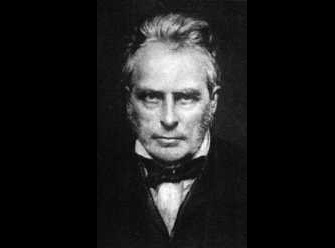
Living the Yet Not I Life...
I am crucified with Christ, nevertheless, I live, yet not I...
Galatians 2:20
The Plymouth Brethren
By the 1800’s, the theologians in England and Europe had developed what is called Higher Criticism, a method of study which treats the Bible as a text created by human beings at a particular historical time and for various human motives, in contrast with the treatment of the Bible as the inerrant word of God.
Christians firmly rooted in an orthodox view of the faith were appalled to see unregenerate clergy not only paid out of state coffers, but openly attacking the inspiration and authority of the Word of God. Despairing over this state of affairs, many withdrew from the established churches of the day and sought fellowship elsewhere.
The Bible Society Movement begun in 1804 and the Oxford Movement (not to be confused with the Oxford Group of the 20th century), are two of a number of movements that sprang up to protect the faith.
In the 1820’s John Nelson Darby joined such a group of dissidents meeting in Dublin Ireland. Brilliant, gifted and having graduated from Trinity College in Dublin he had the social connections that would have assured him a comfortable life as a lawyer.


Spiritual hunger led him to forsake the law and seek ordination and then priesthood in the Church of Ireland (Anglican) in 1826. Finding himself dissatisfied with the condition of the Church he resigned from his curacy in 1827 (or 1828). In the Winter of 1827-28, he started meeting with the dissidents.
Although he was not the original organizer, he soon became the leading spirit of the movement which became known as the Plymouth Brethren.
Over the next five years he began to develop his theology– most notably his conviction that the very notion of a clergyman was a sin against the Holy Spirit, because it limited the recognition that the Holy Spirit could speak through any member of the Church.
He is credited by Classic Pauline Dispensationalist Miles Stanford with rediscovering truths related to Christian growth. Full assurance of salvation; complete acceptance by the Father in His Beloved Son; The Church as the Body of Christ; the absolute distinction between Israel and the Church, and therefore between law and grace; the basic dispensations in the Word; the pre-tribulational, pre-millennial Rapture of the Church; identification with the Lord Jesus in His death unto sin and the old man via Romans Six; freedom from the principle of law, via Romans Seven; our position in the Lord Jesus at the Father’s right hand; and God’s purpose to conform us to the image of His Son are all teachings that were unknown or not fully developed until Darby.
While strong on growth principles, the Brethren were weak on ecclesiology. They were unable to properly organize themselves and became fragmented between different groups as they sought to maintain and enforce doctrine. Stanford says that they overemphasized the method of gathering over the practice of the growth truths they had discovered. Not growing properly, they failed to attract the type of members they were seeking.
The Brethren have failed to grow as a Christian body, but the teachings of Darby formed the basis of much of Pentecostalism, fundamentalism, and oddly enough Alcoholics Anonymous. Miles Stanford says of Darby that his teachings constitute a second Reformation.
